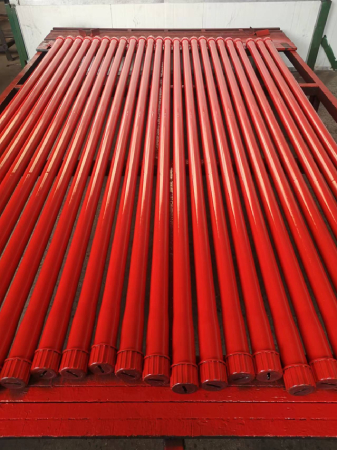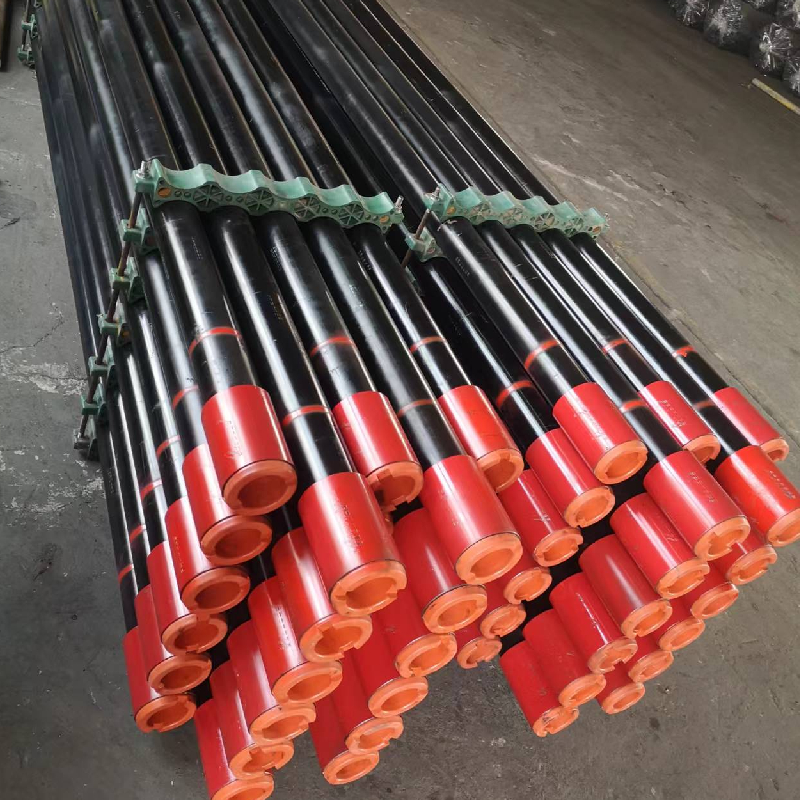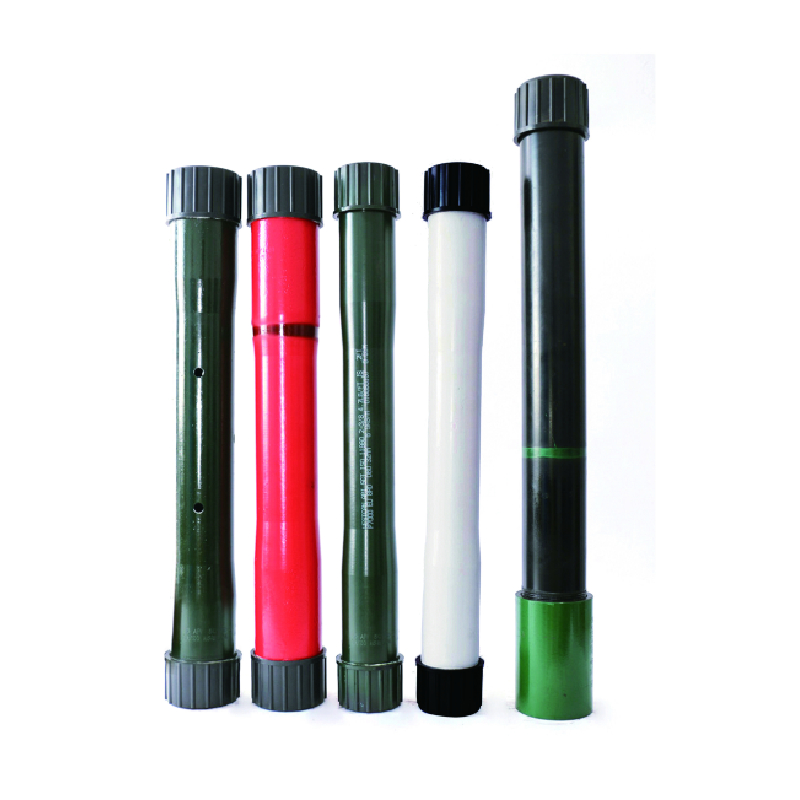Tubing Pup Joints - Hengshui Weijia | Pressure Resistance & Customization

Tubing Pup Joints are critical components in the oil and gas industry, designed to connect sections of tubing and ensure seamless flow of hydrocarbons from reservoirs to the surface. These joints are engineered to withstand high-pressure environments while providing flexibility and durability, making them indispensable in well operations. This article explores the functionality, advantages, technical specifications, and applications of tubing pup joints, alongside insights into the company behind this innovation: Hengshui Weijia Petroleum Equipment Manufacturing Co., Ltd.
Understanding Tubing Pup Joints
Tubing pup joints are short lengths of tubing used to adjust the overall length of a tubing string or isolate specific sections of a wellbore. They serve as connectors between the main tubing string and other completion equipment, ensuring a tight seal to prevent leaks or production loss. These joints are available in various sizes and configurations to meet the diverse needs of oil and gas operations. One specialized variant, the perforated pup joint, features small holes along its length to facilitate fluid flow in and out of the wellbore, particularly useful for filtering out sand or solid particles from produced fluids.

Perforated pup joints are essential for maintaining smooth production flow by preventing blockages. Their design allows operators to isolate problematic zones while maintaining operational efficiency. These joints are also easy to install and remove, offering flexibility in well management. For more information on pup joint manufacturers, visit Hengshui Weijia’s product page.
Key Features and Advantages
Tubing pup joints are engineered to deliver exceptional performance in harsh environments. Their primary advantages include:
- Pressure Resistance: Designed to withstand high-pressure conditions, ensuring the integrity of the wellbore.
- Flexibility: Allow for adjustments in tubing length, accommodating varying well depths and configurations.
- Seal Integrity: Provide a tight seal to prevent fluid loss and maintain production efficiency.
- Customization: Available in multiple sizes and specifications to suit specific operational requirements.
For operators, these features translate to reduced downtime, lower maintenance costs, and improved safety. The perforated design further enhances their utility by enabling controlled fluid flow, which is critical in preventing sand production and ensuring long-term well performance.

Tubing pup joints are not just connectors; they are integral to optimizing well performance. Their ability to adapt to different operational scenarios makes them a versatile tool in the oil and gas industry. For a deeper understanding of pup joint oil and gas applications, explore Hengshui Weijia’s comprehensive resources.
Technical Specifications
The technical specifications of tubing pup joints are tailored to meet industry standards, ensuring reliability and safety. Below is a detailed overview of key parameters:
| Parameter | Details |
|---|---|
| Material | Carbon steel, stainless steel, or alloy steel (depending on application) |
| Dimensions | Available in diameters ranging from 1.5" to 4.5" (customizable) |
| Pressure Rating | Up to 10,000 psi (varies by material and design) |
| Standards Compliance | API 5CT, ASTM A106, and ISO 3183 (as applicable) |
| Surface Finish | Smooth, corrosion-resistant coating for enhanced durability |
These specifications ensure that tubing pup joints can operate effectively in extreme conditions, from deep offshore wells to onshore drilling sites. Compliance with API 5CT (a standard developed by the American Petroleum Institute) guarantees that the product meets rigorous quality and performance benchmarks.
Applications in the Oil and Gas Industry
Tubing pup joints are utilized across various stages of oil and gas production, including:
- Well Completion: Connecting tubing strings to facilitate fluid flow during production.
- Workover Operations: Adjusting tubing length to access new reservoir zones or repair equipment.
- Fracturing and Stimulation: Isolating sections of the wellbore to optimize hydraulic fracturing processes.
- Production Optimization: Enhancing efficiency by preventing blockages and ensuring consistent flow.
Perforated pup joints are particularly valuable in sand-prone formations, where their design helps filter out particulates and protect downstream equipment. This makes them a preferred choice for operators in challenging environments.
Company Background: Hengshui Weijia Petroleum Equipment Manufacturing Co., Ltd.
Hengshui Weijia Petroleum Equipment Manufacturing Co., Ltd. (衡水维加石油装备制造有限公司) is a leading manufacturer of oil and gas equipment, specializing in the production of tubing pup joints and related components. With years of experience in the industry, the company has established itself as a trusted partner for operators seeking reliable and high-performance solutions.
As a pup joint manufacturer, Hengshui Weijia adheres to strict quality control measures, ensuring that all products meet international standards. Their commitment to innovation and customer satisfaction has earned them a reputation for excellence in the global market. For more information about their capabilities, visit Hengshui Weijia’s official website.
Ensuring Industry Standards and Safety
The oil and gas industry relies on strict adherence to standards to ensure safety and operational efficiency. API 5CT is one such standard, providing guidelines for the manufacturing and testing of tubular goods. By following these guidelines, Hengshui Weijia ensures that their tubing pup joints are manufactured to the highest quality and performance criteria. This alignment with industry standards is critical for maintaining the integrity of well operations and preventing failures that could lead to costly downtime or environmental risks.
While the National Institute of Standards and Technology (NIST) does not directly regulate oil and gas equipment, its role in developing measurement standards and technical guidelines indirectly supports the industry’s compliance efforts. For example, NIST’s work on material testing and calibration ensures that tools like tubing pup joints are accurately assessed for performance and safety. Operators can refer to NIST’s resources to understand the broader context of standards in the industry.
Conclusion
Tubing pup joints are indispensable components in the oil and gas industry, enabling efficient and reliable production operations. Their ability to connect tubing sections, withstand high pressures, and adapt to diverse applications makes them a vital tool for operators. With the expertise of manufacturers like Hengshui Weijia Petroleum Equipment Manufacturing Co., Ltd., the industry continues to benefit from advanced solutions that meet the highest standards of quality and performance.
For further details on tubing pup joints and their applications, visit Hengshui Weijia’s product page. Explore the latest innovations in oil and gas equipment and discover how they can enhance your operations.
References
1. National Institute of Standards and Technology (NIST) – For insights into industry standards and measurement guidelines.
2. American Petroleum Institute (API) – For details on API 5CT standards and their impact on tubular goods.
3. Hengshui Weijia Petroleum Equipment Manufacturing Co., Ltd. – For product specifications and manufacturer information.
-
Tubing Crossover - API Compatible, Custom Sizes, In StockNewsNov.10,2025
-
Tubing Coupling | High-Strength, Leak-Proof Steel CouplingsNewsNov.10,2025
-
Wholesale API Threading Casing Coupling | API 5CT, Fast ShipNewsNov.10,2025
-
Pup Joint Supplier | API Certified, Custom, Quick ShipNewsNov.10,2025
-
Pup Joint Manufacturers | Precision Machined, Fast DeliveryNewsNov.10,2025
-
Tubing Coupling | Precision Steel, Leak-Proof, Fast DeliveryNewsNov.03,2025







